Hubert Woroniecki on filming his first boss, the legendary Elite Model Management founder, John Casablancas.
By Hubert Woroniecki
Hubert Woroniecki on filming his first boss, the legendary Elite Model Management founder, John Casablancas.
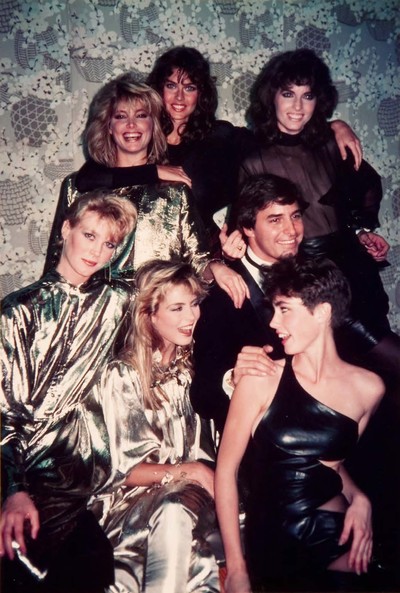
John Casablancas didn’t just love models. He loved all women. And women loved him too. Why wouldn’t they? He was an extremely charming man: good-looking, clever, funny, educated and polite. He was born with a silver spoon in his mouth. Luck was on his side.
Running a model agency and leading a so-called playboy lifestyle happened by accident for John. I mean, the guy didn’t even know what a model was when he was 20. He just wanted fun, freedom and to be around women. John being John, he got all three and turned them into a pioneering business that changed the modelling industry forever. Like I said: he was lucky.
I first met him when I was a teenager. My family would spend summer holidays in Ibiza, and as it happened, so would John Casablancas. He owned a house just down the road from ours. The first time I was told that a guy who ran a model agency was coming over for dinner with a bunch of models – including his then girlfriend Stephanie Seymour – well, I arranged to stay in that evening. As a kid, I remember thinking he was such a fun guy, someone you’d want to share your holidays with.
A few years later, when I was doing my MBA at Université Paris-Dauphine, I had to partake in the annual ritual of the summer internship. They’d inevitably be boring office jobs at one of the big banks, but one summer, John’s partners Gérald Marie and Alain Kittler called up to offer me an internship at Elite Model Management in Paris. This became my introduction to the fashion industry, and the first time I’d witnessed the business behind the man in Ibiza. It was pretty well paid, too. This was much better than the bank.
But despite the seductive world of models and the fashion industry, my real dream had always been to make films. I’d grown up obsessed by the work of Kieslowski and Polanski and had an urge to attend film school.
But after business school, I drifted back into the fashion industry, and when John called me with the offer of a full-time job as a booker for Elite in New York, I agreed to go for one year. Unsurprisingly, I ended up staying longer – from 1993 to 1997. During those four years, Elite was the model agency: we were making three times more than any of the competition, and in one year our girls featured on nine out of the 12 monthly covers of American Vogue. Apart from Kate Moss and Claudia Schiffer, we represented all the supermodels. Which was to be expected, since it was John Casablancas who’d created the supermodel in the first place.
Contrary to popular belief, John hadn’t always dreamt of running a model agency. His thing was marketing and promotion. By the time he was about 22, he’d already become a marketing manager for Coca Cola in Brazil. He loved coming up with innovative ways to market and promote things, and that meant models too. Elite was the first agency to use model ‘books’ and composites. He was also the first agency owner to work with models of broader ethnic backgrounds at a time when they weren’t represented in the fashion industry.
Although we shared an office, I didn’t see much of John during those years: he was never on the booking table; he wasn’t even in New York that much because he was taking care of Elite as a business, as a brand, as an international agency. Nonetheless, those times we’d see one another and have dinner, he’d always be friendly and tender – like an uncle. The fact that he’d known me since I was a kid made a difference.
After four years though, it was time for me to move on. I left New York to attend the Polish National Film School in Łódz and completely lost touch with John. My previous life as a model booker and my new one as a filmmaker seemed at odds. Yet I’d always wanted to make a film about the modelling industry; I’d seen first hand what it was like and knew that nothing of any interest or quality existed about it in film.
One day though, I saw the Robert Evans film, The Kid Stays in the Picture, which opened my eyes to what could be done in documentary storytelling. I thought it was fantastic: Evans narrates his own story, and you get a genuine insider’s point of view of what Hollywood was like in the 1960s, 1970s and 1980s. It immediately struck me that a film about John could be just as fascinating – here was a man whose playboy lifestyle was the stuff of legend, and who could capture some real insight into the modelling industry.
I contacted John, and he answered back very quickly: ‘Sure, let’s do it.’
Just like when I was at Elite, John trusted me to do whatever I felt was best for the project. He originally recorded a four-hour narrative in a New York studio, which I slowly got down to an hour and ten minutes for the film. When I first thought about the project, I imagined interviewing other people like Gérald and Alain or Linda Evangelista and Naomi Campbell – just to give them a droit de réponse. But what could they say in a sentence or two that would bring something to John’s story? The film is a documentary, but it sits between documentary and fiction. After all, John’s was a dream life.
‘The film is a documentary, but it sits between documentary and fiction. After all, John’s was a dream life.’
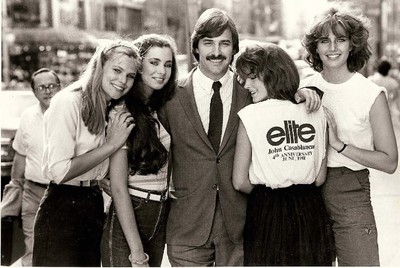
“I’ve been approached many times over the past years by people wanting to tell the story of my life. I wasn’t sure that the subject, although perhaps amusing, deserved so much attention. It’s not false modesty; it’s just depending on how I look back at it, my life seems at times full and exciting or merely futile and superficial. Was it successful and filled with adventure? Definitely. Does it add up to something full and meaningful? That I really don’t know. Nothing I’ve done has changed the world, but by God I’ve had fun doing it!”
When System asked me to interview John in the summer, we tried speaking a couple of times, but it was clear that he was too ill to participate. He’d already had throat cancer 12 years previously, but he got very sick again in June 2012. He fought it as much as he could – he flew all around the world trying to find a cure – because he was someone who absolutely loved life. Two weeks after our last conversation, he passed away.
Back in January this year, I’d flown to John’s home in Rio to show him the first cut of the film. I was keen to get his thoughts, to get his blessing. He liked what I’d done with his story, and the only thing he asked was to make sure it didn’t hurt his wife Aline or his family.
The film is now nearly completed, and with a bit of luck it’ll be released next year. When I look at parts of it now, I still get such a strong feeling about this larger than life man, John Casablancas. Hearing his voice tell the story is really moving to me. Like he’s still there. As a filmmaker, that’s all you can hope to achieve.
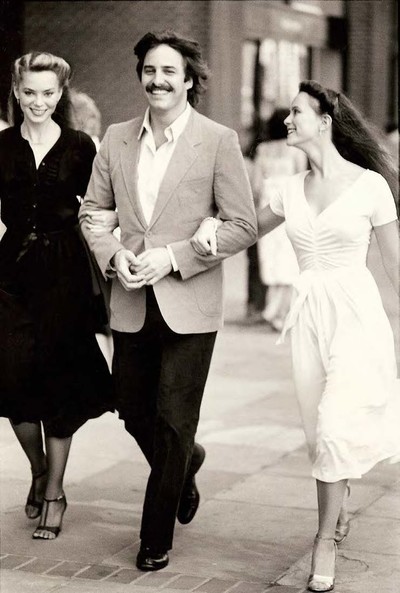
“I lost my virginity at the age of 15 on a summer night in 1958 in Cannes on the French Riviera. I was a very lucky boy. Most of my friends had terrible first experiences with hookers or ugly girls in awful places at the end of long drunken nights. I had an illuminating first experience. At the end of the summer, I went back to school a changed man. I was destined to fall in love very passionately and very regularly.”
John Casablancas
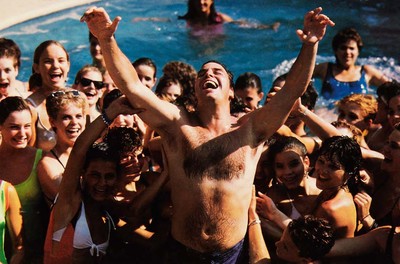
‘Cher Monsieur,
Votre fils a couché avec la bonne! Votre fils a trahi la con- fiance que nous placions en lui; il a trahi tout le monde ici! Nous ne souhaitons plus entendre parler de lui. Toutes nos lettres de recommendation sont annulées immédiatement.’
– Letter from Le Rosey School
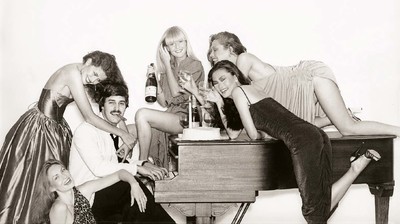
“I’m always amused when someone says: ‘Your job is so easy. All you do is surround yourself with beautiful women.”
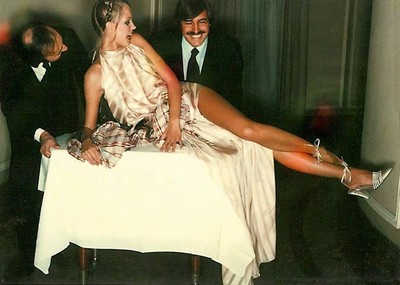
“It was an unexpected profession, accidental and wonderful. It was a profession that allowed me to hold in my arms a number of women of such incredible beauty that most men could not even dare to dream it.”
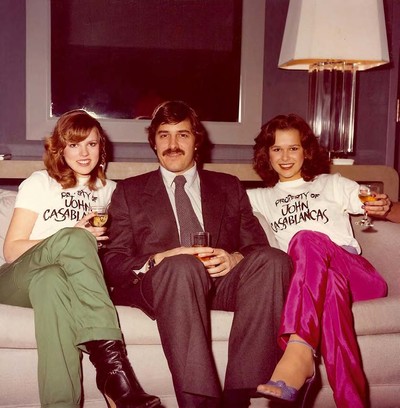
“Everyone has an interesting story, you just have to know how to tell it. I’ve had a fantastic life: a life of ups and downs, of exciting moments and depressing ones. And, I’ve been very lucky – lucky because the mediocrity of the business and my competitors made me look like a genius.”
Courtesy of John Casablancas Estate